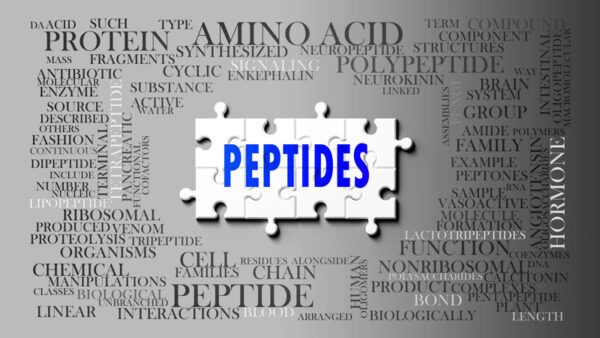HOW IMPORTANT IS PROLACTIN?
When prolactin levels rise or fall substantially in men, they can significantly affect sexual function. Research has shown that too much prolactin (hyperprolactinemia) has been linked to low libido (low sex drive), erectile dysfunction (ED), delayed ejaculation, and might also interfere with testosterone production.
Erectile dysfunction is defined as the inability to achieve or maintain an erection. It is believed that the prevalence of ED is 18%-52% in differing age groups of men between 20 and 70 years of age with approximately 18+ million men estimated to have erectile dysfunction. Older men are particularly affected by this important quality of life problem.
Erectile dysfunction, generally associated with reduced sexual desire and is the major revealing symptom of high levels of prolactin in men. High levels of prolactin is a condition that should not be neglected since often it is the result of a tumor on the pituitary gland called a “prolactinoma”. The tumor produces high levels of prolactin. These tumors can be large or small and are usually benign, meaning they are not cancerous. Prolactinomas are more common in women than in men.
WHAT CAUSES HIGH PROLACTIN LEVELS, KNOWN AS “HYPERPROLACTINEMIA”?
Symptoms caused by elevated blood prolactin. Prolactin interferes with the secretion of the hormones from the pituitary gland that control the function of the ovaries in women and the testicles in men.
When a high blood prolactin concentration is found in men, it interferes with the function of the testicles, the production of testosterone (the main male sex hormone), and sperm production. Low testosterone causes decreased energy, sex drive, muscle mass and strength, and anemia. If levels remain low for several years, bone strength may decrease. High levels of prolactin in the blood also cause difficulty in getting an erection.
As mentioned earlier, tumors on the pituitary gland can increase prolactin levels. But also, certain prescription medications can increase prolactin levels. Drug-induced high levels of prolactin are the first cause to consider. This easily reversible cause is responsible for a significant proportion of the high levels of prolactin in men with sexual dysfunctions. These include medications for:
- High blood pressure
- Pain
- Heartburn and gastroesophageal reflux disease
- Depression and increased anxiety
- Hypothyroidism (or an underactive thyroid gland)
- Sometimes, no cause for high levels of prolactin can be found
HOW ARE HIGH LEVELS OF PROLACTIN DIAGNOSED?
A blood test is used to detect excess prolactin. If high levels of prolactin are found, more tests are usually done to check blood levels of thyroid hormone. Normal thyroid hormone levels rule out a sluggish thyroid gland (hypothyroidism) as a cause of high levels of prolactin.
If a prolactinoma (a tumor producing high levels of prolactin) is suspected, an MRI (magnetic resonance imaging) of the brain and pituitary is often the next step.
WHAT IS THE TREATMENT FOR HIGH LEVELS OF PROLACTIN?
Treatment is based on the cause. Some people with high prolactin levels have no signs and symptoms and may not need treatment. If a sluggish thyroid is the cause (hypothyroidism), this is treated with synthetic thyroid hormone, which should bring prolactin levels back to normal. If high prolactin levels are caused by prescription medications, other types of medications can be explored.
MEN’S SEXUAL PROBLEMS CAN ALSO BE LINKED TO LOW PROLACTIN LEVELS.
According to a recent study, sexual problems in men may also be linked to low levels of prolactin. The finding is surprising because experts have traditionally thought prolactin impairs men’s sexual functioning only at high levels.
The results of this study showed low prolactin was linked to not only several signs of poor sexual health but also poor mental and emotional health. Men with levels of prolactin that were lower than average were more likely than men with higher levels to say their sexual function was getting worse, particularly their enjoyment of orgasm. They also had more symptoms of depression.
Low prolactin levels were also associated with higher BMI (body mass index), high blood sugar, lower levels of physical activity and generally feeling unhealthier.
PROLACTIN AND PROSTATE CANCER CONNECTION
Prostate cancer is presently one of the most frequently diagnosed cancers and represents one of the leading causes of death from cancer in men in the United States and worldwide. A major reason for the failure to develop a successful treatment has been the confusion regarding the development and progression of advanced prostate cancer. The normal prostate cell and the cancerous cell are both regulated by testosterone and prolactin. Despite decades of research and extensive funding, an effective treatment still does not exist, until now.
The prostate is a hormone-dependent organ and the most important factors in its development and growth are male hormones such as testosterone and prolactin. There has been a recognition of the implications of prolactin in promoting the development and progression of advanced prostate cancer. However, this relationship has been largely ignored. A 2016 extensive review of prostate cancer with over 300 references makes no mention of prolactin.
As mentioned earlier, prolactin is produced by the pituitary gland, but prolactin is also produced in the prostate gland. In prostate cancer, the production of prolactin by the prostate gland is increased. One study found that prolactin was “active” in 95% of recurrent prostate cancer cases.
AS YOU KNOW, GETTING THE RIGHT CARE IS CRITICAL TO NOT ONLY PROTECTING YOUR HEALTH BUT ALSO ENJOYING LIFE.
You can have high or low levels of prolactin by itself or low levels of testosterone by itself, but often they go hand in hand. The symptoms are remarkably similar which means that it is almost impossible to determine which hormone is causing symptoms.
As we begin to balance and support healthy hormone levels through hormone supportive therapy, it’s important to carefully monitor the therapy’s effect on your other hormones. Frequent screening is important and why blood work is necessary, and the results are evaluated by a healthcare professional experienced in hormone supportive therapy.
Being aware of potential issues and having a plan of action with your healthcare partners prevents them from becoming problems during therapy will keep you happy and healthy!
WHAT CAN YOU DO TO PROTECT YOURSELF?
The first step is to have your blood work done and the results evaluated by a healthcare professional experienced in hormone supportive therapy. If your prolactin levels are higher than they should be, there are medications available and over-the-counter supplements to keep prolactin levels low. As with any hormonal supportive therapy, it is very important to carefully monitor that therapy’s effect on your other hormones. Frequent screening is important.




